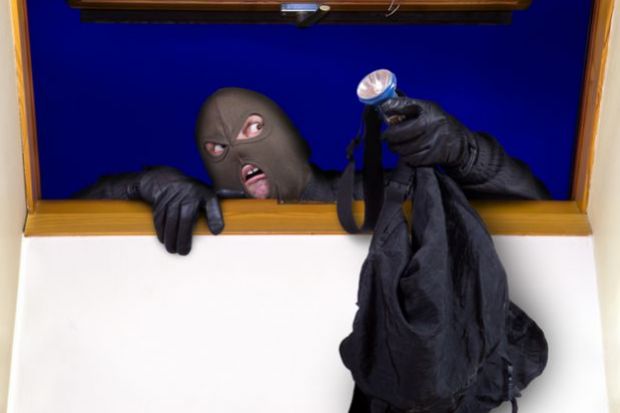Since the return of UK students to universities in September, it seems that campus security has hit headlines for all the wrong reasons.
First, it was being told to erect barriers at a University of Manchester hall of residence and carry out ID checks at entry points. Understandably, this led to protests from students – one of whom likened the situation to Alcatraz – that culminated in wire mesh fencing being toppled.
A month earlier, students at Manchester Metropolitan University were similarly unimpressed when told to self-isolate with immediate effect. One student claimed the university seemed to be holding students “against our will”.
Then there was the incident in which an undergraduate was pinned against a wall by security staff, allegedly for “looking like a drug dealer”.
I can’t explain or justify the above, but I will say we’re all working in fraught times. Before each shift, our supervisor forwards the list of student flats where undergrads have declared that they are self-isolating. We call it the minefield because we’re still required to enter should there be an out-of-hours maintenance emergency – such as a blocked toilet that pours water through the kitchen ceiling.
Regular security duties have taken a slight back step, with priority going to getting quarantined freshers their Amazon orders and placating parents whose self-isolating son or daughter hasn’t checked in on Facebook that day (we don apron and visor and enter the minefield to ensure the student in question is OK).
So why haven’t universities succeeded in “minimising the risk of transmission”, as the education secretary, Gavin Williamson, assured the House of Commons in September that they would?
It would be easy to pin the blame on the students – I’ve certainly seen them do some daft things in my 10-plus years on the job. Take the fresher heckling drivers from his first-floor window who hadn’t counted on one of them being a very nimble scaffolder. Or the drunk lad who rolled his ankle and got a piggy-back home, only for his other ankle – and a coffee table – to be smashed up when his even more hammered partner dropped him when they got back to their flat.
So I can understand why the government announced its proposed evacuation window to get students home before Christmas. The plan in England is to shift all teaching online by 3 December, then screen every student for coronavirus at a nearby test centre. Provided they come back negative, they’ll be given a specific window before 9 December to travel.
But I’m really not sure how it’s going to work. If Boris Johnson, the most powerful and protected man in the country, can contract Covid-19 twice, what hope is there for a teenager who almost burned down his kitchen trying to dry bedsheets on a gas hob?
Until they are given their allotted departure time, no one is meant to travel home, but that is a challenge for us guards. Do we dive on anyone pulling a suitcase and accuse them of jumping the wall? Dispersing skateboarders and stray smackheads is one thing; forcing people back indoors is a little bit too secret police for my liking.
Some students have already faced discipline, such as the girl who grassed on the bloke opposite her in halls for sneaking in his boyfriend. This breach of Covid protocols wasn’t a shock to us; we can’t cover every part of the campus fence, and if I was 19 and paying £9,250 for a bedroom, I’d certainly be making the most of my bed, too.
But we were surprised to find the girl had only made the complaint because she’d snuck in two friends of her own. She decided to report the boys when they refused to go five ways on a curry.
There’s an argument that students should never have come back to campus this year. But I can see the value of face-to-face learning when I patrol our medical block. Imagine if all the doctors staffing those makeshift Nightingale hospitals had done all their learning via Zoom. Would the quality of care be anything like as good as it is?
Still, for students on other courses – such as the two freshers we encountered suffering panic attacks this week – maybe virtual study would suit them more. Though then we wouldn’t have been able to buy one of them a very un-virtual pizza to calm down with.
I’ve heard academics blame MPs for allowing students back, and even causing the second wave. I’m not sure it’s as simple as that, either, but if any politicians are reading this, I’ve got an idea for how you can make social distancing on campus more feasible.
Pay Apple to install a patch in its next software update that makes your phone search for other nearby handsets. Any device that gets within two metres of one from a different address sounds a klaxon, and then begins to eat its own hard disk. No student would risk such an existential crisis.
If that’s too brutal, the patch could instead post everything to Instagram: memes, selfies, texts to Mum. Keep your distance and stay safe or your followers will see everything – and that includes those photos buried in your secret calculator app.
Then again, I’m not sure how we’d afford all the anti-trauma pizzas that we’d need to provide.
George Bass is a security guard at a UK university.
Register to continue
Why register?
- Registration is free and only takes a moment
- Once registered, you can read 3 articles a month
- Sign up for our newsletter
Subscribe
Or subscribe for unlimited access to:
- Unlimited access to news, views, insights & reviews
- Digital editions
- Digital access to THE’s university and college rankings analysis
Already registered or a current subscriber? Login








